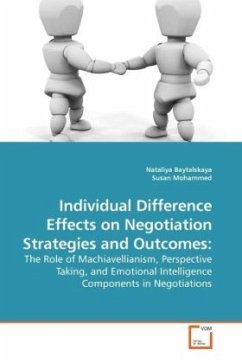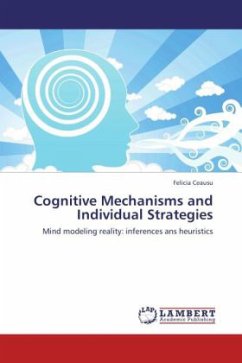This study examines four individual differences related to emotions (Machiavellianism, perspective taking, emotional understanding, and emotional management) and their effects on negotiation outcomes and strategy utilization at the individual and dyad level of analysis. It investigates which individual differences facilitate the use of emotional and cognitive negotiation tactics and which lead to higher levels of individual and joint gain, as well as viability and negotiation satisfaction. The study analyzes data collected from student dyads in a lab study that asked participants to negotiate with each other in the roles of job candidate or new manager. Results suggest that Machiavellianism enabled the use of more distributive and emotional strategies and the use of integrative strategies led to higher levels of individual and joint gain. Furthermore, males were found to perform better than females with regard to both negotiation outcomes and strategy utilization. Suggestions forfuture research on individual differences in negotiations are discussed as well as practical and theoretical implications of the research.
Bitte wählen Sie Ihr Anliegen aus.
Rechnungen
Retourenschein anfordern
Bestellstatus
Storno








